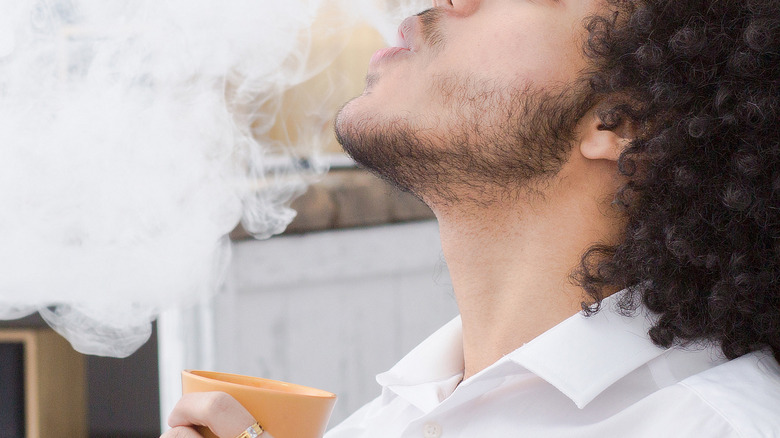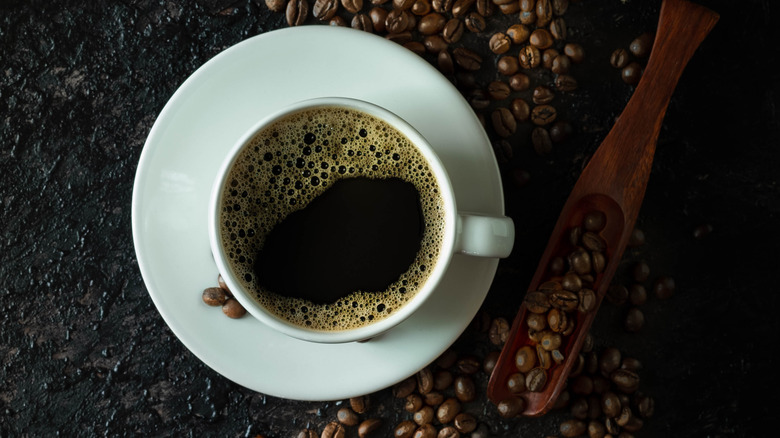This Is How Smoking A Cigarette With Your Morning Cup Of Coffee Actually Affects Your Brain
In 2020, statistics showed that nearly 31 million Americans were current cigarette smokers, according to the U.S. Centers for Disease Control and Prevention (CDC). In the same year, research from the National Coffee Association revealed that 62% of people in the U.S. consumed coffee on a daily basis. Interestingly, studies show that there may be a link between the two habits.
According to 2014 research published in the Journal of Caffeine Research, those who smoke cigarettes are more likely to be coffee-drinkers than non-smokers. Not only that, but science shows that these individuals often engage in both habits simultaneously. For example, researchers cited a 2002 study in which individuals were 55% more likely to smoke a cigarette while actively consuming caffeine.
To uncover what may be behind this relationship, researchers from a new study explored the physiology behind morning cigarette smoking that occurs in tandem with coffee consumption through the use of animal subjects.
Could coffee reduce nicotine cravings?
Additional research explored in the previously mentioned 2014 research study suggests that cigarette smoking expedites the body's processes of converting caffeine into energy. With caffeine being filtered more quickly through the body, this may lead to increased caffeine consumption amongst smokers in order to maintain the stimulating effects offered by coffee. Additionally, some people who smoke report that the taste of a cigarette is heightened alongside a cup of coffee, leading to increased satisfaction.
The new animal research published in the scientific journal, Neuropharmacology, looked at the effects of coffee compounds on neurons in the brain. "We wanted to know if there were other things in coffee that were affecting the brain's nicotine receptors," study author, Roger Papke, announced in a public statement (via HealthDay). The researchers administered both roasted and unroasted coffee bean solutions to cells that play a role in nicotine cravings.
Contrary to previous research, the study team found that one such compound found in coffee may actually help curb the desire to smoke by repairing a neuron dysfunction associated with cigarette cravings (per HealthDay). Similarly, the research suggested that n-MP, another compound found in brewed coffee, may also help abate morning nicotine cravings. At this time, more research is still needed involving human subjects.


